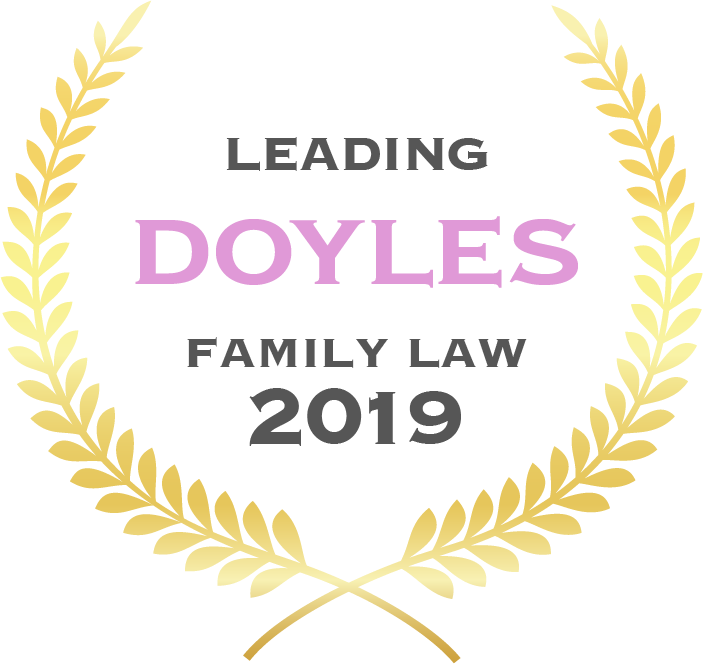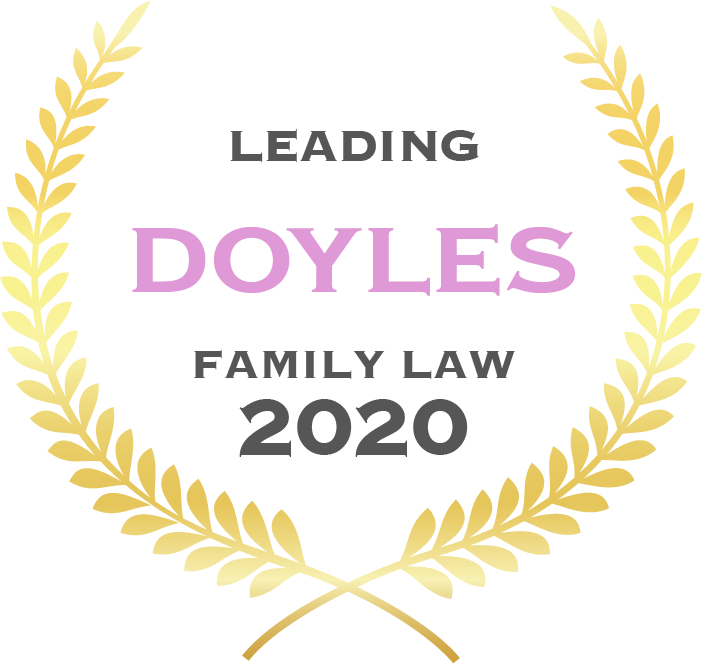Child Custody Lawyer Gold Coast
Going through a separation or divorce can be a challenging period, particularly when children are involved. As part of the separation process, you will need to settle child custody arrangements, determining who the child or children will live with and how they will spend their time. Parenting arrangements might be considered, depending on your circumstances.
The team at Marino Law have vast experience with parenting arrangements as some of the best child custody lawyers on the Gold Coast.

REAL RELATIONSHIPS. PROVEN RESULTS.
Trusted Child Custody Lawyers Gold Coast
Book an appointment with compassionate child custody solicitors on the Gold Coast.
- Gain certainty from multi-award winning, highly-qualified team of legal professionals
- Afford premium legal services with Marino Law’s cost-effective rates
- Access practical solutions, strategic legal advice & a track record of success
- Consult with recognised leaders in our specialised divorce & family law practice areas
OBLIGATION FREE
Why Choose Our Child Custody Lawyers?
Marino Law’s highly-skilled and experienced child custody lawyers, located on the Gold Coast, can help you to navigate even the most complex child custody matters. We support our clients through the challenging transition of parenthood, ensuring children’s best interests are prioritised. When it comes to legal matters concerning your children, you can count on us for assistance with:
- Child Custody in Your Family Law Case
- Crafting Parenting Plans
- Parenting Arrangements
- Securing Consent Orders
- Mediation Services
- Handling Court Proceedings for Child Custody
- Addressing Child Relocation Matters
- Facilitating International Travel for Your Children
Having a family lawyer with the right skills, experience and expertise is crucial when dealing with family law matters, especially those involving child custody. At Marino Law, we pride ourselves on having top-tier family law solicitors who excel in addressing a wide range of family law issues, including child custody matters. Our team is dedicated to representing your interests and those of your children with professionalism and compassion.
Here’s why hiring a family law solicitor is essential in child custody cases:
- Expert Guidance: Family lawyers can offer valuable advice during private Family Dispute Resolution mediations, helping you navigate the complexities of the process effectively.
- Legal Representation: When necessary, family lawyers can assist you in making applications to the family court for custody of your children, ensuring your rights are protected throughout the legal proceedings.
- Support for Third Parties: Family lawyers are equipped to assist not only parents but also grandparents and other third parties seeking time with children or custody arrangements.
- Drafting Legal Documents: Family lawyers can provide legal advice and draft private child support agreements tailored to your specific needs and circumstances.
Choose Marino Law for the best legal representation on the Gold Coast or in Brisbane, and let us be your trusted partner in navigating your family law case. You can count on us to provide you with a child custody lawyer Gold Coast residents stand by.
Our Experience
1.25 Hours
Someone retains the services of Marino Law every 1.25 hours
150+ Years
Over 150 years combined experience
15+ Years
Achieving successful outcomes for clients for over 15 years
14,000+ Clients
Over 14,000 valued clients
Trusted Advice For Child Custody & Parenting Arrangements
Having a Family Lawyer from the Gold Coast on your side is crucial for achieving a favourable legal outcome tailored to your needs. At Marino Law, our commitment is to equip you with the necessary tools and advice to navigate your family law matter successfully. Here’s how a child custody lawyer can support you:

- In navigating a separation, having the support of a family lawyer right from the outset is crucial. A family lawyer will guide you through understanding your rights and responsibilities regarding custody, offering advocacy throughout the separation process. Reach out to Marino Law, and let us assist you in navigating this challenging time.
- Before resorting to court intervention, both parties involved in the separation must engage in certain steps, including attending a family dispute resolution conference. We can represent you during these conferences to ensure your interests are safeguarded.
- Should an agreement on childcare arrangements be reached during the conference, it can be formalised through either an informal parenting plan or a court-ordered consent order.
- In instances where agreement cannot be reached, applying for a parenting order becomes necessary. This legal directive, issued by the court, specifies how children are to be cared for post-separation. Adherence to a parenting order is mandatory for all parties involved once it is issued by the court.
- It’s important to note that while a parenting plan delineates responsibilities, it lacks the legal weight of a court order. On the other hand, consent orders and parenting orders are legally binding, ensuring accountability. Should one party fail to uphold their obligations as outlined in these orders, the other party retains the option to seek legal recourse through the court system.
Family Dispute Resolution
Couples navigating a separation or divorce are mandated to engage in family dispute resolution before resorting to family law court proceedings, particularly in cases involving children. At Marino Law, we recognise the significance of this process and stand ready to support you through every step.
Our experienced family lawyers offer representation when you attend family dispute resolution, providing invaluable guidance to ensure a seamless mediation experience while safeguarding your legal rights. We understand the complexities and sensitivities involved in these matters, and we are committed to advocating for your best interests throughout the resolution process. With our expertise by your side, you can navigate family dispute resolution with confidence, knowing that your rights and the well-being of your children are in capable hands.
Child Living Arrangements: Parenting Plan vs. Consent Orders
A Parenting Plan serves as a written agreement between you and your ex-partner, outlining your children’s future living arrangements. While not legally required to be registered nor enforceable by a court, a recent Parenting Plan can be utilised as evidence in court proceedings to demonstrate the parties’ intentions regarding the children’s best interests.
On the other hand, a Consent Order is a court-approved agreement that establishes the children’s future living arrangements following an application to the court. It’s only granted if deemed to be in the children’s best interests, and there’s no need for a court appearance to obtain one.
The crucial distinction lies in enforceability: while a Parenting Plan lacks legal enforceability, breaching a Consent Order can lead to legal consequences.
In most cases, opting for a Consent Order ensures certainty and enforceability regarding the children’s living arrangements. Should a breach occur, remedies are available to rectify it.
However, Parenting Plans are most effective when parties maintain an amicable relationship post-separation, with minimal likelihood of enforcement needs or anticipated changes in circumstances necessitating future revisions.
Despite post-separation amicability, future changes such as parental re-partnering or relocation can strain relationships and escalate parental conflicts.
The primary advantage of a Consent Order is its permanence until the children reach adulthood, with alterations requiring significant changes in circumstances and court approval.
To modify a Consent Order without the other party’s consent, court permission is necessary, contingent on demonstrating a substantial change in circumstances.
For guidance on identifying significant changes and eligibility to seek Court Order modifications, seek advice from our seasoned family law experts. Get in touch for an initial consultation today.
WE LET OUR CLIENTS DO THE TALKING
Excellent legal service. Outstanding professionalism. Extremely prompt and reliable. Not expensive but very good value for much. Recommend them highly.
Kyle B.
Would highly recommend this firm very easy to work with, punctual and professional. Thankyou to everyone involved in my case.
Hamuera M.
A huge thank you to the team at Marino Law for sticking by me in my long divorce and property settlement, ensuring an outcome I was very happy with.
Their lawyers are exceptional, they are extremely competent and knowledgeable in family law, they are professional, diligent, and meticulous during each and every battle we faced and they really listened to what I wanted as a client.
Most importantly to me, they showed empathy, kindness and respect to both me and others involved, it is these attributes that raise lawyers from capable to outstanding.
I would recommend Marino Law wholeheartedly, particularly to anyone who values ‘fighting with honour.’
Penne S.
Marino Law are true professionals and engage with sincere care and attention. Their focuses on getting the job done efficiently rather than trying to find endless ways to bill you. Highly recommend, I couldn’t be happier.
Trent
I chose Marino Law after speaking with several different firms. They were forthcoming with advice, their concern for my situation was evident and they never mentioned engaging their services past that call.
It was because of this I chose to engage them for my custody dispute post separation.
Their commitment to their clients and the welfare of their children is evident, and their guidance made what was a very difficult and hostile situation bearable and led to an agreeable outcome.
I have since referred other people to Marino Law and can only advise others that having a dedicated team who give you expert advice and keep you from responding emotionally, during a very emotional time makes all the difference for the future of you and your family.
Thanks again
Sahlua R
Great Service, Great Lawyers, Great Team, Great Results. Very Professional Legal firm who manage my case in NSW. Thank you for all your support.
RGT
I would like to sincerely Thank Marino Law for all their continued support and excellent legal advise and guidance.
Ive sincerely appreciated the companies ongoing professionalism and care guiding me through a very daunting process.
Hand on heart the team is amazing and the company collabration and committment was incredible.
Marino Law secured a 100% positive outcome for me in my matter.
I Highly recommended them.
Sandy S.
Marino Law is amazing in Family Law.
Their professionalism, wealth of knowledge and great advice along with their caring approach got my family and I the best result in the end.
Thank you Marino Law.
Allira I.
I recently had the pleasure of working with Marino Law on my family law matter, and I cannot speak highly enough about the quality of their services. From start to finish, they demonstrated exceptional professionalism, expertise, and care for my legal needs.
Right from our initial consultation, I was impressed by my lawyers ability to understand the unique details of my case. She provided clear explanations of the legal process, ensuring that I was fully informed and comfortable with the next steps.
Throughout the entire process, thye kept me up to date with frequent updates and progress reports. She was always available to answer any questions I had, and I felt confident that she had my best interests at heart.
Perhaps most importantly, my lawyer was able to achieve a successful outcome for my case, and I am extremely grateful for her hard work and dedication. I truly believe that her expertise and attention to detail were key factors in securing a positive outcome.
Overall, I would highly recommend Marino Law to anyone in need of legal representation. They truly went above and beyond to provide excellent service, and I cannot thank them enough for their help.
Regan M.
Amazing service, understanding and speediness of ensuring a resolution. I cannot recommend Marino Law enough from my initial enquiry to the end result. 5 stars and then some 🙂
Cammy M.
If you are in need of Family Law Experts then go to Marino Law. They were amazing and worked tirelessly on my case given the urgency I was faced with. Having previously engaged another law firm for 3 months that did not even contact me once they had my funds. So walking through those doors of Marino for the first time I felt finally at ease and confident that I was in the right place. I cannot recommend them more highly. Thank you for all your work, effort and the outcome.
Leonie F.
Great Team at Marino Law. Worked outside of hours to ensure we meet a short deadline and got a great result.
Thanks again Team Marino
Michael M.
Why Choose Us

Experienced
Multi-award winning, highly qualified and experienced team of legal professionals.

Specialised
Recognised as leaders in our specialised areas of practice of business and personal law.

Practical
Practical solutions, strategic legal advice and a track record of success.

Affordable
Access premium legal services at Marino Law’s cost effective rates.

Personal & Business
Marino Law can handle all of your personal and business law requirements.

Central
Easily accessed with easy parking, find Marino Law on the highway at Mermaid Beach.
Child Custody Lawyer Gold Coast – Frequently Asked Questions
Will We Need To Go To Family Law Court?
In child custody matters court proceedings are often avoided whenever possible and considered a last resort.
Concerns about involving a lawyer often arise, with individuals fearing it may strain their amicable relationship with their former partner or yield no progress. However, a proficient child custody lawyer can educate you about your rights and strategise on achieving them while maintaining harmony with the other party.
Prior to resorting to court, it’s imperative that you and your former spouse attempt to resolve matters. This process, known as ‘family dispute resolution‘, is mandatory in cases involving children. The aim of family dispute resolution is to minimise legal expenses and court involvement while facilitating parental agreements.
Having a competent lawyer to represent you during mediation is crucial. Should mediation prove unsuccessful, the option to apply to the court for adjudication remains available.
What Are Consent Orders?
Consent Orders stand as legally binding and enforceable agreements pertaining to parenting matters, serving as a pivotal tool in establishing stability and clarity for families post-separation. Once drafted, these orders undergo thorough scrutiny by the Court, ensuring alignment with the child’s best interests. Once approved, the Court seals the Consent Orders, rendering them irrevocably final.
Though Consent Orders offer a solid framework for co-parenting arrangements, it’s essential to acknowledge their permanence. Any future modifications necessitate demonstrating a significant change in circumstances to the Court. This requirement underscores the gravity of altering established agreements and serves to maintain the integrity and stability of the arrangements outlined in the original Consent Orders. Thus, while providing enforceability and legal weight, Consent Orders also underscore the need for thoughtful consideration and diligence in navigating parenting matters post-separation.
What Is Meant By The “Best Interest Of A Child”?
The Court always prioritises the child’s best interest and acknowledges that each parent is responsible for their child’s life. This is typically an equally shared responsibility unless there are valid reasons to believe a parent has been involved in family violence or child abuse.
A child has the right to know and have a meaningful relationship with both parents. This may include having substantial and significant time with the child’s parents.
Determining a child’s best interest necessitates the Court to consider the factors outlined in section 60CC of the Family Law Act 1975.
What Happens If We Are Unable To Make Child Custody Arrangements?
In most cases, resolving a child custody dispute and obtaining parenting consent orders post-divorce entails negotiation with a seasoned family lawyer. While there are exceptions, such as instances of urgency or risk, mediation remains a mandatory step in the process. Mediation serves as a crucial avenue for amicably addressing differences and reaching mutually agreeable solutions.
Navigating child custody cases can be emotionally taxing and legally complex, making professional legal guidance indispensable. Seeking advice from a reputable family law firm like Marino Law is highly advisable in such circumstances. Our dedicated team of family law experts is committed to providing comprehensive support and advocacy every step of the way. From initial consultations to courtroom representation, we ensure that your rights are protected and your children’s best interests remain at the forefront. When you seek legal advice with Marino’s family law services, you can navigate child custody disputes with confidence and peace of mind.
What Is Equal Shared Parental Responsibility?
Post-separation, it is generally assumed that both parents share equal responsibility for their children. It is imperative that when parents separate, they both earnestly strive to involve one another in the process of making significant, lasting decisions.
However, equal parental responsibility does not indicate that the parents will, by default, receive an equal division of time with their child or children.
For routine daily matters, consultation with the other parent is not required. In such cases, the parent who has the child in their care that day is empowered to make the necessary decisions.
What Is The Family Law Act?
The Family Law Act delineates the comprehensive framework governing the rights, duties, powers, and liabilities of both spouses and children within the context of familial relationships.
Moreover, it not only outlines these fundamental aspects but also establishes mechanisms for the enforcement of these rights and liabilities, ensuring compliance and safeguarding the interests of all involved parties.
Additionally, the Act addresses the dissolution of marriage, offering guidelines and procedures to facilitate the legal termination of marital unions while prioritising fairness and equity.
Can I Relocate When Working Through Child Custody Matters?
The principle held in the Family Law Act 1975 assumes that both parents share equal parental responsibility. Unless this presumption is overturned by the court, parents must seek consent from one another before relocating with the children. If a parent relocates without permission, the Federal Circuit and Family Court of Australia have the power to issue an order for the children’s return. Trust Marino Law to guide you through these processes in the best interest of your children.
What Is A Parenting Arrangement?
Parenting arrangements can be formalised by a Parenting Plan or Consent Orders, if an agreement is reached between parents. It is highly recommended that each party seek independent legal advice from an experienced child custody lawyer before signing any parenting-related documents.
Parenting Plans are written, signed, and dated parenting agreements made between parents. They are not legally enforceable or binding, but they do provide flexibility should circumstances change. If one party does not comply with the terms of the agreement, a contravention proceeding cannot be initiated.
How Do I Legally Formalise Our Child Custody Agreement?
After separation, you and your ex-partner have options to establish the living arrangements for your children. This can be done informally, through a Parenting Plan, or formally, via a Consent Order.
Regardless of the relationship dynamics between you and your ex-partner, seeking the guidance of a seasoned child custody lawyer is advisable. They can assist in documenting the agreement either through a Parenting Plan or a Consent Order. This legal documentation offers clarity and stability for both parties, reducing the likelihood of future disputes over your child custody case.
What Personal Aspects Might Be Considered In A Child Custody Case?
The following factors may be considered, and many more:
- The child’s preferences – Depending on their age and maturity level, a child’s wishes may be taken into account
- Proposals presented individually by the parents – In many cases, both parents may have different ideas about how to best care for their child and may present separate proposals for custody.
- Any health issues, physical or mental, that could impact everyone involved – For example, if one parent has a chronic illness or disability, their custody proposal should explain how they plan to manage their condition while caring for the child.
- Past incidents of aggression or history of violence by either parent – If there have been any previous instances of domestic violence or aggressive behaviour, this should be addressed in the proposal and a plan for ensuring the safety of all parties involved should be outlined.
- The relationship that exists between the child and each parent – this includes how often each parent will have contact with the child, as well as any activities or traditions that may be important for maintaining a strong bond.
- The kind of living conditions each parent can provide for the child – this includes not only the physical environment but also the emotional and psychological well-being of the child. Factors such as stability, consistency, and support should be addressed in the proposal.
- An expert psychologist or social worker’s professional recommendations.
What Is Sole Parental Responsibility?
Sole parental responsibility refers to the concept of one parent bearing total responsibility for significant, long-term decisions affecting their children until they reach 18 years of age. This includes decisions about the child’s education, religious or cultural upbringing, healthcare needs, name and living arrangements.
Sole parental responsibility is not the same as child custody and does not bar the other parent from spending quality time with the child or children.
Do I Have A Right To Claim Sole Custody?
Sole custody of a child is only granted where it is in the best interests of the child. Sole custody may be considered in cases where there is:
- Domestic violence or substance abuse
- Neglect of child’s basic needs
- Parental alienation: where one parent alienates the child from the other parent
- Inability to communicate with the other parent
At What Age Can A Child Decide Their Own Living Arrangements?
The determination of the legal age at which a child can decide their living arrangements is not straightforward. Instead, it involves a nuanced consideration of various factors by the court. These factors typically include the child’s level of maturity and age, the rationale behind their preference, and the recommendations outlined in the family report.
The court assesses whether the child’s expressed preference regarding their living situation should be given weight in establishing parenting orders that are in the child’s best interests. This evaluation aims to ensure the child’s overall well-being is prioritised and that any decisions made regarding their living arrangements align with their developmental stage and individual needs.
What Other Family Law Advice Can Marino Law Help Me With?
Marino Law can guide you in all family law legal services with their experienced team of family lawyers. Whether you are seeking advice in divorce, separation, adoption or binding financial agreements, the team at Marino Law has the expertise to help you.
Take your first step to supportive, compassionate and expert legal advice today. Let our team listen and provide you with the clarity and advice you need for your family.
OBLIGATION FREE
GET IN TOUCH
Contact us today on 07 5526 0157 to make an appointment with one of our Gold Coast Lawyers to disscus your Family Law & Divorce legal matters.
Award Winning Lawyers








